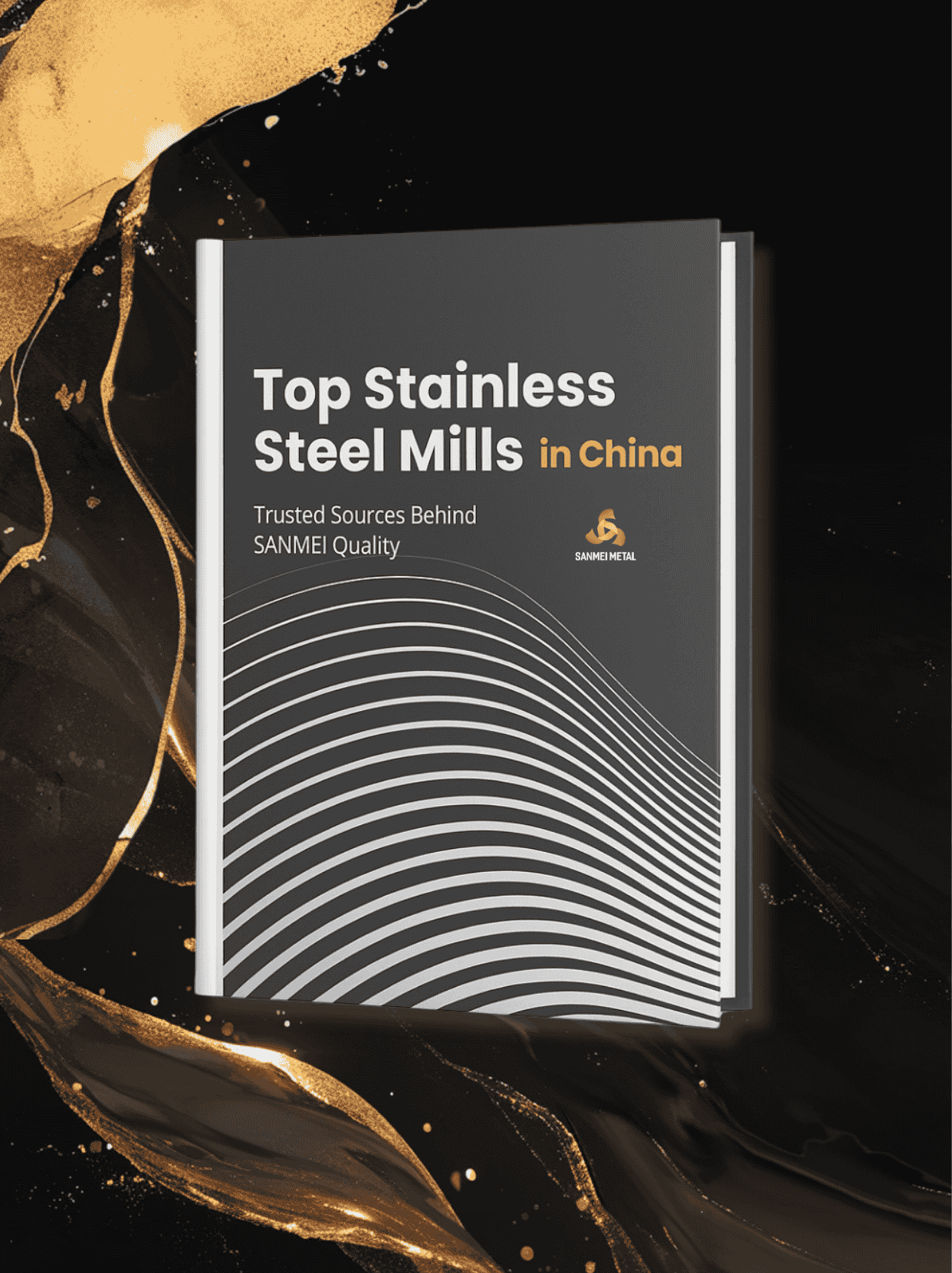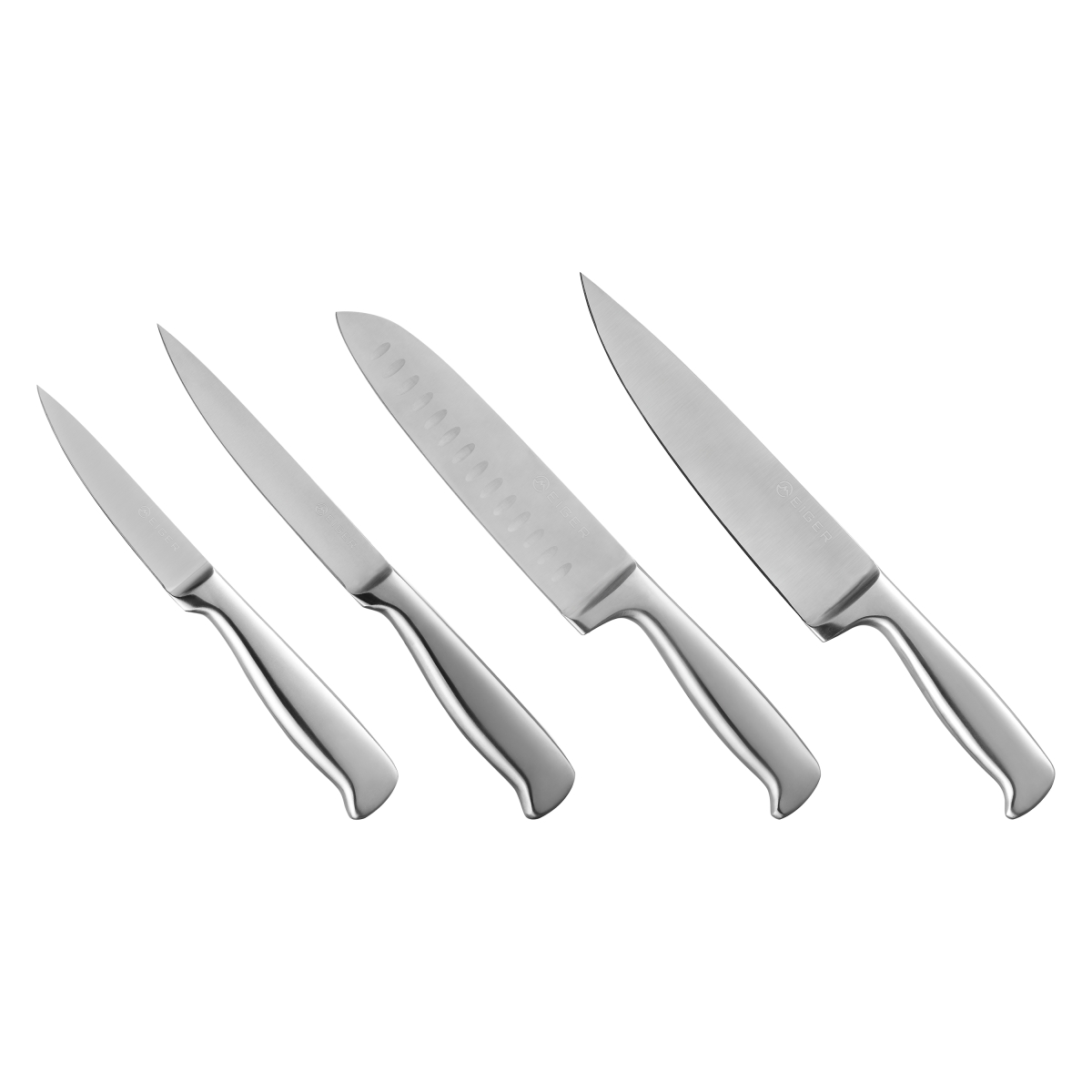
احصل على حر الوصول: ملف مصنع الصلب #1 في الصين
موجه نحو المشتري: مطابقة المطاحن حسب الدرجة/اللمسة النهائية/العرض والسمك/التطبيق
باووتسينغشانليسكوتيسكو


مقاومة ممتازة للتآكل لمنع التلوث

عدم التفاعل مع الأطعمة الحمضية أو المالحة أو الحارة

سطح أملس وقابل للتنظيف للمعايير الصحية

متانة في درجات الحرارة العالية لبيئات الطهي
يجب أن تكون أدوات الطهي المصنوعة من الفولاذ المقاوم للصدأ، مثل الأواني والمحامص والشوايات، غير سامة وآمنة للتلامس مع الطعام. بالإضافة إلى ذلك، فإن عوامل الأداء مثل مقاومة التآكل وتحمل درجات الحرارة العالية وسهولة التنظيف والصيانة تشكل أهمية بالغة لأدوات المطبخ عالية الجودة.
تشتهر درجات الفولاذ المقاوم للصدأ 304 و304L و316 و316L و321 و309S و310S بالحفاظ على الأداء الممتاز في البيئات ذات درجات الحرارة العالية ومقاومة الصدأ، مما يجعلها مثالية لتصنيع معدات الطهي المختلفة.
لا ينبغي أن تلبي أثاثات وأجهزة المطبخ المصنوعة من الفولاذ المقاوم للصدأ متطلبات مقاومة التآكل والقوة العالية فحسب، بل يجب أن تكون أيضًا ممتعة من الناحية الجمالية كأثاث للعرض. بالإضافة إلى ذلك، فإن التنظيف والصيانة السهلة أمران ضروريان في بيئة المطبخ المليئة بالدهون.
تتمتع درجات الفولاذ المقاوم للصدأ 304 و304L و409 و430 و2205 و2207 و436 و439 و441 بمقاومة ممتازة للتآكل وخصائص ميكانيكية ويمكنها الحفاظ على المظهر الجذاب، مما يجعلها مناسبة لتصنيع أثاث المطبخ والأجهزة.
يجب ألا يتفاعل الفولاذ المقاوم للصدأ المستخدم في حاويات وأواني تخزين الطعام مع الطعام. بالإضافة إلى ذلك، تحتاج هذه الحاويات إلى مقاومة عالية للتآكل بسبب المواد المضافة في بعض الأطعمة. كما أن سهولة التنظيف تعد ميزة كبيرة لهذه المواد.
يجب أن يتمتع الفولاذ المقاوم للصدأ المستخدم في أدوات المائدة وأواني الشرب بصلابة جيدة ومقاومة للتآكل، وخاصة بالنسبة للسكاكين، حيث تكون الصلابة والقوة العالية أمرًا ضروريًا. بالنسبة للمستهلكين المعاصرين، لا تعد أدوات المائدة وأواني الشرب مجرد حاويات، بل هي أيضًا عناصر زخرفية تعزز الجاذبية الجمالية لمجموعاتهم.
| درجة | الميزات الرئيسية والتطبيق |
|---|---|
| السلسلة 201 (J1 ~ J4) | حاويات فعالة من حيث التكلفة وقصيرة الأجل لملامسة الطعام |
| 304 / 304 لتر | معيار صناعي للاستخدام في الأغذية، ومقاومة للتآكل والحرارة |
| 316 / 316 لتر | عالية الأداء للمعالجة الحمضية والمالحة والمأكولات البحرية |
| 321 / 309س / 310س | مقاومة لدرجات الحرارة العالية، مثالية للأفران الصناعية والشوايات |
| 409 لتر / 410 / 410 إس | متينة ومقاومة للاهتراء ومثالية للسكاكين وأدوات المائدة |
| 420ج1 / 420ج2 | صلابة عالية لأدوات القطع والأواني |
| 430 / 436 / 439 / 441 | قابلية تشكيل جيدة وفعالية من حيث التكلفة، وتستخدم على نطاق واسع في المطابخ المنزلية |
| 2205 / 2207 | فولاذ دوبلكس لبيئات المعالجة القاسية، قوة ممتازة ومقاومة ممتازة للتآكل |
في SANMEI، نقدم الفولاذ المقاوم للصدأ المعتمد من الدرجة الغذائية في شكل لفائف وصفائح على حد سواء، مع تشطيبات سطحية مثل 2B، وBA، ورقم 4، وHL، وتلميع المرآة - مثالية لمعدات المطبخ والأجهزة وخطوط تجهيز الأغذية.
ولكن كيف تعرفين ما إذا كان ما تشترينه آمنًا حقًا للطعام؟ في أسواق مثل الصين، حيث تختلف معايير المواد، من المهم التحقق من المصدر. 👉 هل الفولاذ المقاوم للصدأ المخصص للطعام الذي تشتريه من الصين هو حقًا من الدرجة الغذائية؟
اقرأ دليلنا لمعرفة ما يجب التحقق منه - وكيفية اختيار المورد المناسب.
المقر الرئيسي:
مركز الإبداع، رقم ١٤٢، طريق يوهي، بلدة ليكونج، منطقة شوند، مدينة فوشان، مقاطعة قوانغدونغ، الصين. ٥٢٨٣١٥
مصنع: مدينة لييوان اللوجستية، بلدة تشينكون، منطقة شوند، مدينة فوشان، مقاطعة قوانغدونغ، الصين. 528313
قاعدة الدعم المحلية في أستراليا: (ياتالا، كوينزلاند) - قادم في عام 2026